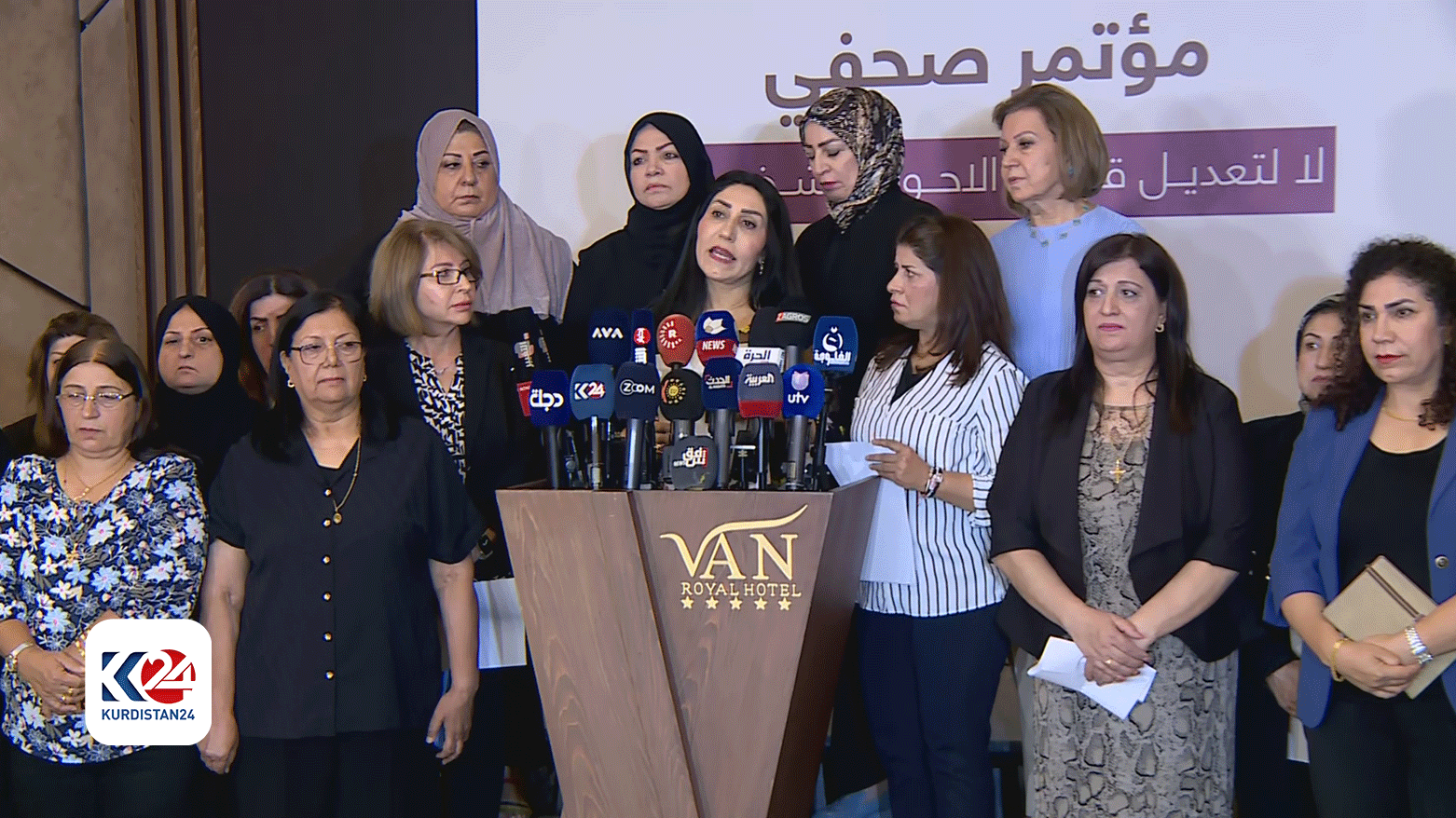Activists protest in Erbil against controversial amendment to Iraq’s Personal Status Law
During a press conference, the activists delivered a bilingual statement in Kurdish and Arabic, expressing their concerns that the amendment would exacerbate societal issues and undermine the rights of women and families.

ERBIL (Kurdistan24) — A group of women activists from various civil society organizations gathered in Erbil to protest against proposed amendments to Iraq’s Personal Status Law, urging the Iraqi parliament to reject the controversial bill.
During a press conference, the activists delivered a bilingual statement in Kurdish and Arabic, expressing their concerns that the amendment would exacerbate societal issues and undermine the rights of women and families. They warned that the proposed changes could lead to increased violations of women's rights.
Activist Rezan Sheikh Diler highlighted a key concern: the amendment would decriminalize marriage outside of court and lower the legal marriage age to 12. She pointed out that the current law requires marriages to be conducted in court, partly to ensure genetic screenings—an important safeguard that would be disregarded under the new amendment.
The amendment also introduces the option for couples to choose their religious affiliation when getting married, which has sparked further controversy. For instance, under Ja'fari jurisprudence, girls as young as nine could legally marry. Activists and civil society groups, particularly women’s organizations, view these changes as deeply dangerous, warning that they could deepen sectarian divides in Iraq.
The Iraqi parliament initially postponed the first reading of the amendment to July 24 due to significant disagreements among lawmakers. However, the reading eventually took place in November, intensifying the debate.
Supporters of the amendment argue that it could help reduce divorce rates and improve the welfare of children in cases of separation by proposing joint custody arrangements. However, many lawmakers and activists remain vehemently opposed, calling for the bill’s suspension, fearing it could destabilize Iraqi society.
Despite the mounting opposition, the parliament continues to push forward with the amendment, navigating both internal and external challenges as the debate unfolds.